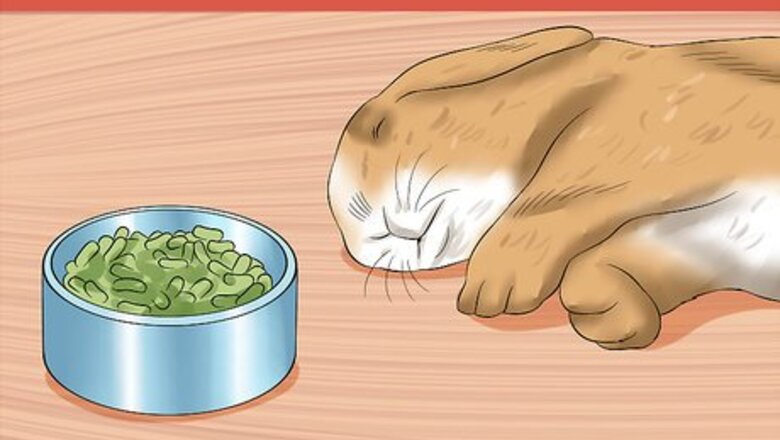
views
Identifying Digestive Problems in Rabbits
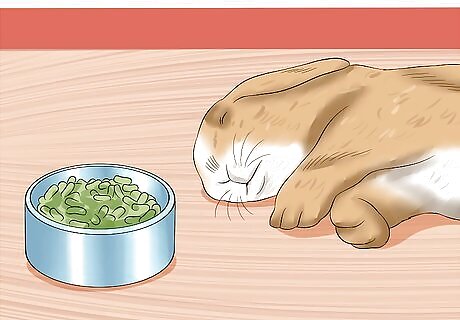
Observe changes in your rabbit’s appetite. A decreased appetite is a common sign of digestive problems in rabbits. Be aware that a reduced appetite can be hard to notice at first—your rabbit may be sick for several days before you realize he’s eating less. Anorexia in rabbits can lead to serious medical problems, so do not delay in getting treatment for your rabbit if you notice he is not eating. Your rabbit may be eating less because he is unable to eat, not because he doesn’t want to. For example, dental disease may make it difficult for your rabbit to chew his food properly.
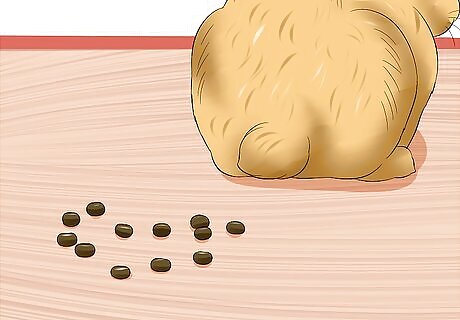
Monitor your rabbit’s production of fecal pellets. A healthy rabbit produces two types of fecal pellets: a hard pellet made of indigestible fiber, and a soft pellet (‘cecotrope’). Rabbits eat the cecotropes for additional nutrients. For some digestive problems, such as gastrointestinal (GI) stasis, rabbits will produce fewer pellets, or none at all. Digestive problems due to a bacteria or virus can cause diarrhea. Inflammation of the intestine can produce mucus-covered pellets. Consider taking a picture of the feces so you can show your veterinarian what the feces look like.
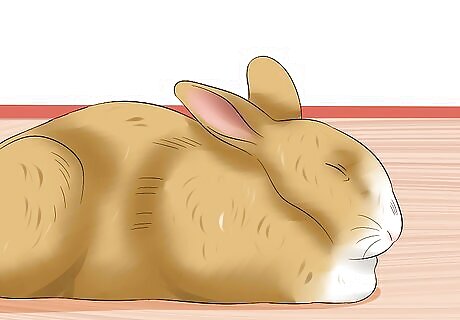
Look for changes in your rabbit’s behavior. As with a decreased appetite, your rabbit’s demeanor and behavior may change when he has digestive upset. For example, he may become more lethargic and prefer to be left alone. Your rabbit may also lie awkwardly on his side or remain in a sitting position to decrease pressure on his belly. Your rabbit may develop a hunched posture and start grinding his teeth because of the abdominal pain. Your rabbit may even press his stomach against the floor because of the pain. This occurs if your rabbit has gas.
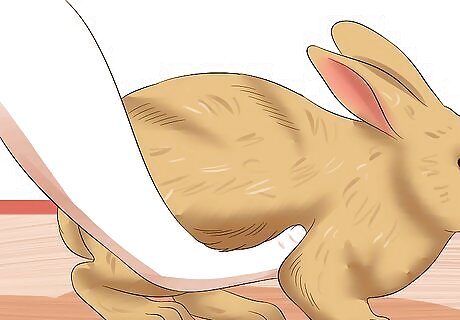
Touch your rabbit’s belly. If your rabbit will let you, gently touch his belly. His belly may feel like dough, which indicates gas buildup. Gas accumulation may also make the belly feel very hard. With some digestive problems, such as GI stasis, harmful bacteria can outnumber good bacteria in the gut. These harmful bacteria can release gas.
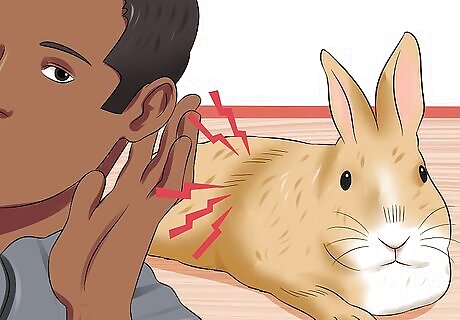
Listen to the sounds of your rabbit’s belly. The digestive system will make sounds (‘gut sounds’) as it is processing food and moving it along through the system. These sounds will be abnormal or completely absent if your rabbit has a digestive problem. For example, if your rabbit has gas, his belly will make gurgling noises. With GI stasis, gut sounds are abnormally frequent early on, then decrease or stop completely as the condition worsens.
Seeking General Veterinary Treatment
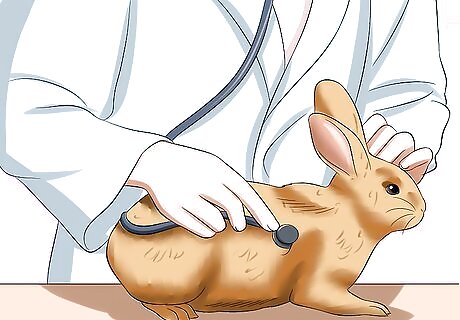
Take your rabbit to your veterinarian. Digestive problems in rabbits can be life threatening. As soon as you suspect a digestive problem in your rabbit, take him to your veterinarian immediately. Your veterinarian will first perform a physical exam of your rabbit. They will then conduct diagnostic tests, depending on what they suspect is causing the digestive problem. If your rabbit has diarrhea, your veterinarian will test the feces to identify the specific organism (e.g., Clostridium). Your veterinarian will take x-rays and/or perform an abdominal ultrasound if they suspect GI stasis or GI obstruction. A GI obstruction can be a life-threatening situation requiring emergency treatment. Being able to visualize your rabbit’s belly will help your veterinarian diagnose and treat your rabbit effectively.
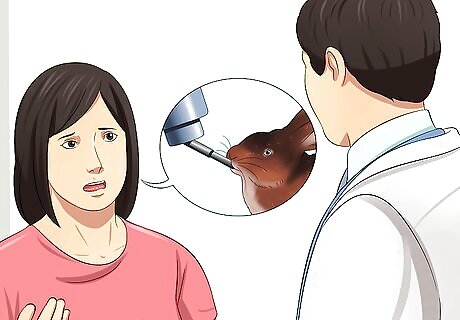
Discuss treatment options with your veterinarian. Treating digestive problems in rabbits typically involves several general treatment strategies, including rehydration, restoring gut movement, and pain control. These treatments are best performed by a veterinarian, at least until the rabbit is well enough for at-home care. Treatment options will vary slightly, depending on the specific digestive problem.
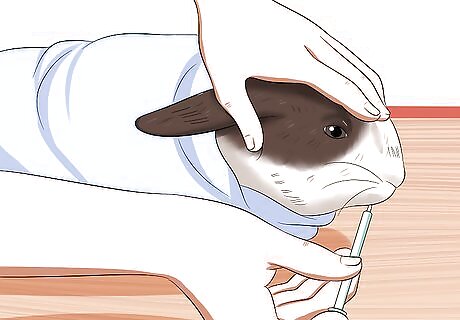
Correct your rabbit’s dehydration. Dehydration can cause digestive problems in rabbits, and be a symptom of these problems. To rehydrate your rabbit, your veterinarian will give him fluids. How your veterinarian administers the fluids (e.g., by mouth, under the skin, directly into a vein) will depend on several factors, such as your rabbit’s ability to drink on his own and the severity of the dehydration. Rehydrating your rabbit will put more fluid in his digestive system, which will soften digestive contents and allow them to pass through the system more easily.
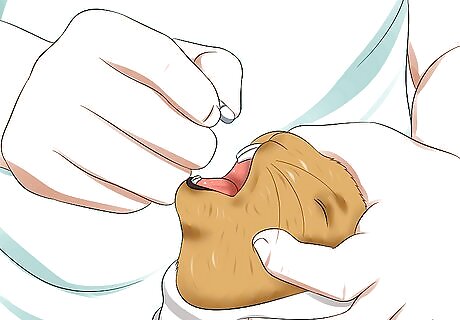
Use medication to stimulate gut movement. If your rabbit’s digestive system isn’t moving food through very quickly, or at all, it will need some help getting back to normal. In addition to fluid therapy, your veterinarian may administer medications called prokinetics to encourage the gut to get moving again. Prokinetics are helpful in treating GI stasis, as well as diarrhea caused by overuse of antibiotics. If your rabbit has an obstruction, he should not receive a prokinetic. Prokinetics may take several weeks to restore your rabbit’s normal gut motility.
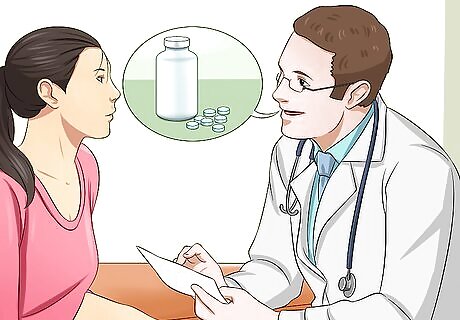
Relieve your rabbit’s abdominal pain. Gas buildup (due to GI obstruction or GI stasis) and diarrhea can be very painful for your rabbit. If the pain is severe, your veterinarian will administer pain medication to get the pain under control as quickly as possible. When your rabbit is well enough to go home, your veterinarian may prescribe a pain medication for at-home care.
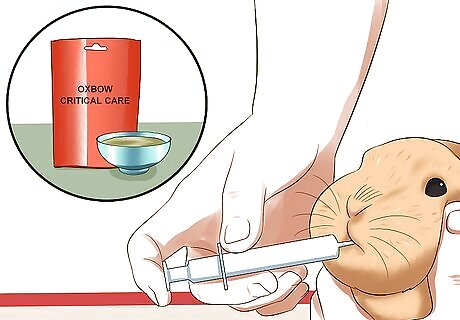
Encourage your rabbit to eat. A bad diet (low in indigestible fiber, high in sugar and carbohydrates) is a common cause of digestive problems in rabbits. Your veterinarian will first see if your rabbit can eat a healthy diet on his own. If he cannot, or will not, your veterinarian may try feeding him a high-fiber gruel, such as Oxbow Critical Care, through a syringe.
Treating Specific Digestive Problems
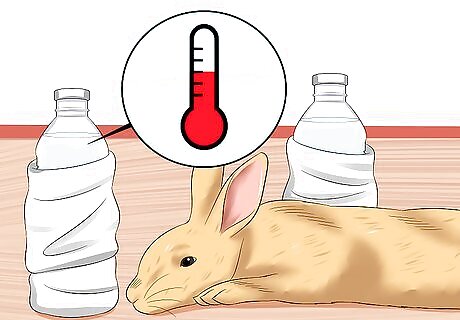
Keep your rabbit warm. Depending on the nature of the digestive problem, your rabbit may need more specific veterinary care. If your rabbit has gas, his temperature may fall below normal (100 degrees Fahrenheit/38 degrees Celsius), which could cause hypothermia. Your veterinarian will have several options to keep your rabbit warm, including placing him on a heating pad, surrounding him with warm water bottles or soda bottles, or simply holding him.
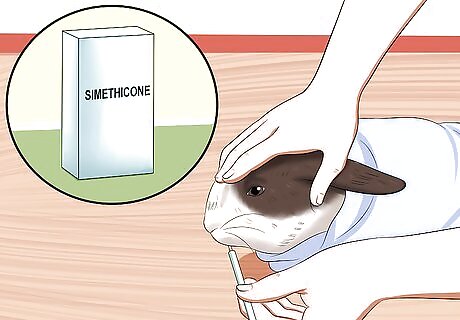
Relieve your rabbit’s gas. Your veterinarian will administer a product that contains simethicone, an ingredient that relieves gas. Over-the-counter simethicone-containing products are available, but it would be best for your veterinarian to treat your rabbit. Tummy massages are also helpful in relieving gas.
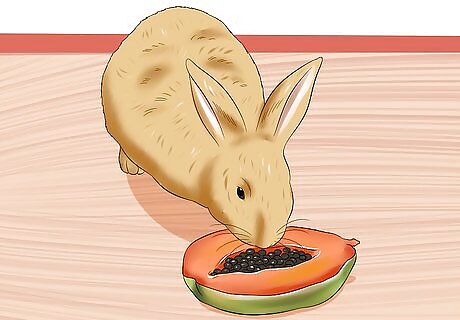
Break down the hairball. If your rabbit has a hairball, your veterinarian will try different remedies to break it down. One remedy is fresh pineapple juice, which contains a digestive enzyme. Another remedy is papaya, which contains an enzyme that would break down the mucus holding the hairball together. Keep in mind that the obstructive hairball could cause gas to buildup. In this case, your veterinarian would treat both the gas and the hairball.
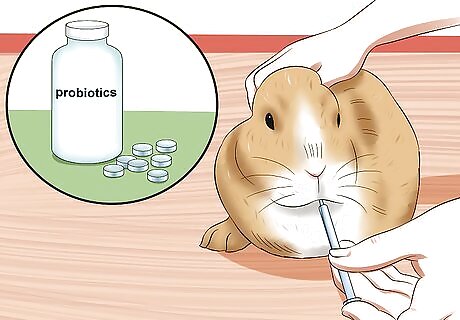
Administer probiotics. Hairballs and overuse of antibiotics can disrupt the normal balance of good versus bad bacteria in your rabbit’s gut. If your veterinarian identifies more harmful bacteria than good bacteria, they will likely administer a probiotic to increase the level of good bacteria.
Treating Your Rabbit at Home
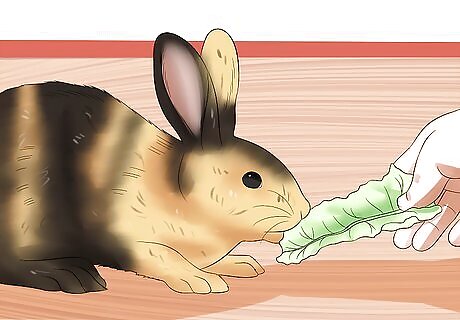
Feed your rabbit a proper diet. Following in-hospital veterinary treatment, your rabbit will need at-home care to fully recover. Feeding him a healthy diet will help him recover. Examples of healthy foods are fresh timothy hay and leafy greens (e.g., kale, spinach). A healthy diet also includes plenty of fresh water. Do not give your rabbit dairy products or any treats that are high in sugar, honey, or seeds.
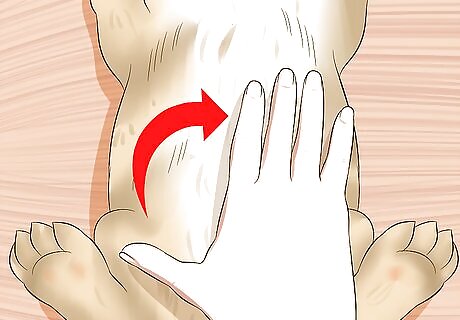
Massage your rabbit’s belly. A tummy massage is a soothing and effective treatment strategy. If your rabbit has a hairball, a massage can help loosen the hairball so it can pass through his system. A tummy massage can also stimulate gut movements.
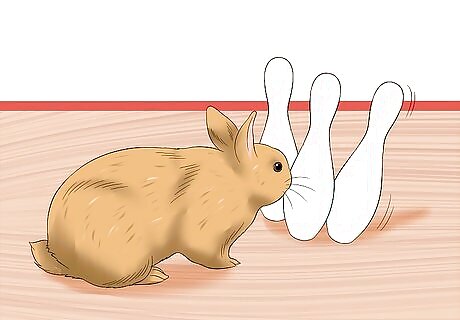
Encourage your rabbit to be active. Physical activity can help improve your rabbit’s gut movements. If your rabbit is well enough to move around, encourage him walk around in his cage. For example, you could move his food a few feet away from him to so he can walk to his food. You could also move his toys a little further away from his sleeping area.
















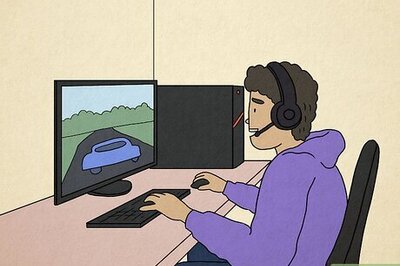

Comments
0 comment